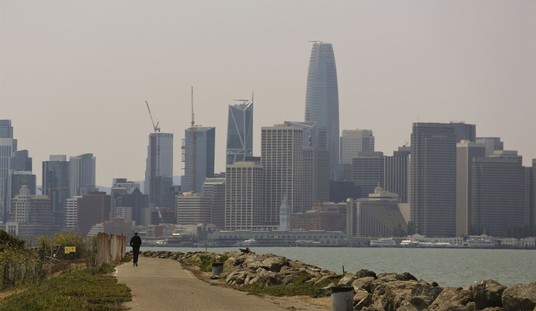As Noah noted earlier, it didn’t take long for the cease-fire in Gaza to fall apart — and the White House didn’t take it too kindly. Press secretary Josh Earnest slammed Hamas “individuals” who “used the cover of a humanitarian cease-fire to attack Israeli soldiers and even take one hostage.” There doesn’t seem to be too much nuance here, except for the blaming of “individuals” — which would hardly be the case had it been Israeli soldiers who violated the cease-fire:
This shows once again just how large the tunnels loom in any attempt to end the IDF’s operations in Gaza. That soldier, a second lieutenant in the IDF, has been confirmed missing by Israel, although his fate is still unclear:
The latest attempt at an Israel-Hamas cease-fire disintegrated Friday. After the capture of an Israeli soldier, the conflict edged closer to escalation than to peace.
The soldier was “abducted” by Palestinian militants during an attack in Gaza in which two other Israeli soldiers died, Israeli military Lt. Col. Peter Lerner told CNN’s Wolf Blitzer. The soldiers were decommissioning a tunnel at the time, Lerner said.
The Israel Defense Forces earlier identified soldier as 2nd Lt. Hadar Goldin. A search operation is under way to find him, Lerner confirmed.
“We need to bring him home,” Lerner said later in the interview.
The rapid collapse of the cease-fire brokered by US Secretary of State John Kerry and UN Secretary-General Ban Ki-Moon puts egg on both faces. Kerry put the blame on Hamas in a statement earlier today:
Secretary of State John Kerry denounced as “outrageous” a militant attack that killed two Israeli soldiers and led to the alleged abduction. Saying it was an affront to assurances to respect the cease-fire given to the United States and United Nations, which brokered the truce. He demanded that the militant Hamas movement that controls Gaza move to “immediately and unconditionally release” the missing Israeli soldier.
“The United States condemns in the strongest possible terms today’s attack,” Kerry said in a statement released by the State Department as he was flying back to the U.S. from an official trip to India.
Kerry said he had spoken with Israeli Prime Minister Benjamin Netanyahu about the developments, which led Israel to declare the cease-fire over. Kerry said it would be a “tragedy if this outrageous attack leads to more suffering and loss of life on both sides of this conflict.”
“The international community must now redouble its efforts to end the tunnel and rocket attacks by Hamas terrorists on Israel and the suffering and loss of civilian life,” he said.
Kerry in particular had worked outside the box to get Hamas on board with a cease-fire, engaging at one time with Turkey and Qatar, two of Hamas’ allies, in order to find some way to stop their attacks so that Israel would halt operations in Gaza. Kerry mentioned neither in his announcement yesterday, but it’s difficult to see how anyone would have credited Hamas with an agreement to stop operations on the basis of the original Egyptian proposal alone, which is what happened yesterday, without getting some sort of assurances from Qatar, Turkey, or both that Hamas would stick to it. In retrospect, it’s either incredible naïveté on the part of the negotiators, or someone issued a guarantee that turned out to be worthless.
Speaking of the Qataris, does anyone else find this a little curious in relation to the US’ sudden interest in roping them into the Israeli-Palestinian peace process?
Qatar’s real estate investment arm decided in 2010 to pump $650 million into City Center, becoming the main owner of the $1 billion project on the site of the District’s old convention center in Northwest Washington. Last week, the first nine tenants moved into City Center apartments; office occupancy is expected next spring, with 40 shops opening in the fall.
Qatar had never invested in D.C. real estate before. And its spending spree didn’t stop there. The Qataris also invested in Chicago, where their Al Faisal Group last year bought the Radisson Blu Aqua hotel. The group has said it will seek other American properties. …
In recent weeks, Qatar Airways announced plans to expand its U.S. servicein 2014 by adding Dallas, Miami and Philadelphia to a lineup of destinations that includes Houston, Washington, New York and Chicago. And last month, Qatar said it will spend $19 billion to buy 50 Boeing 777 aircraft, part of a larger deal between the U.S. aviation company and Qatar and the United Arab Emirates.
The number of Qatari students at U.S. universities has jumped fivefold in the past decade, and the Qatari Foundation International is spending $5 million this year to encourage U.S. schools to teach Arabic.
The surge in interest and investment in the United States by one of the world’s smallest countries is raising eyebrows and questions, many of which boil down to, “Why?”
Buying Current TV and turning it into Al Jazeera America made some sense, in terms of spreading the network’s brand, which had not caught on in the US through the Internet alone. This sudden infusion of billions in investment doesn’t seem to have that kind of obvious strategic sense, especially with their interest in prime Washington DC real estate. Given their friendly relations to Hamas, to whom the Qataris supply significant amounts of funds, it seems all the more curious. In 2009, the same John Kerry who asked Qatar to intervene with Hamas openly rejected Qatar as an ally of the US as long as they funded the terrorists of Hamas:
Before he joined the Obama administration, then-Senate Foreign Relations Committee chairman Kerry (D-Mass.) spoke out against Qatar’s relationship with Hamas.
“Qatar,” he told a Brookings Institution audience on March 4, 2009, “can’t continue to be an American ally on Monday that sends money to Hamas on Tuesday.”
“All Arab nations must increase their efforts at this critical juncture,” he said in the same speech. “The most vital and immediate contribution the Arab community can make right now is frankly to pressure Hamas to stop firing rockets …”
Perhaps Kerry thought he could use the leverage of the US alliance to force Qatar to make good on his 2009 demand. If that’s what he thought, though, Kerry proved himself very much mistaken in 2014 while more or less correct in 2009. However this cease fire came together, its rapid collapse has further damaged the credibility of those who claimed to have achieved it. Perhaps the US and UN should look for better negotiators at this point, or at least some who understand the “barbaric” nature of Hamas and its mission.








Join the conversation as a VIP Member